
The twin sisters whose lives were changed by digital skills
When they were little, twin sisters Nini and Ani Merabishvili, now 16, loved watching animation films. But unlike other children, who were swept along by the story, the twins were fascinated by another kind of magic – how these movies had been created.
So, when they were 11, the sisters completed the Tech Park 3D modelling course, and, since then, they have been doing their favourite work without stopping for a moment.
“We work together, understand each other without a word. When one of us has an idea, another adds something, and so we complement each other,” says Ani.
Nini and Ani study at school and work at the same time. They work on design, factsheets, posters, and the like. The girls received their first fee of GEL 50 when they were 14.
“We spent this money on our first ankle-boots and were immensely happy. Now we work on relatively higher-budget commissions,” Nini laughs.
They started getting serious commissions after completing a course organised by GeoLab and Georgia’s Innovation and Technology Agency (GITA) in 2020. Until then, YouTube tutorials had been their main teachers in the digital world. Now, they are expanding fast: “We are growing; we will be the developers. We have put together a team of designers and marketers and collaborate on large projects. We establish a creative agency, work on web, and branding,” says Nini.
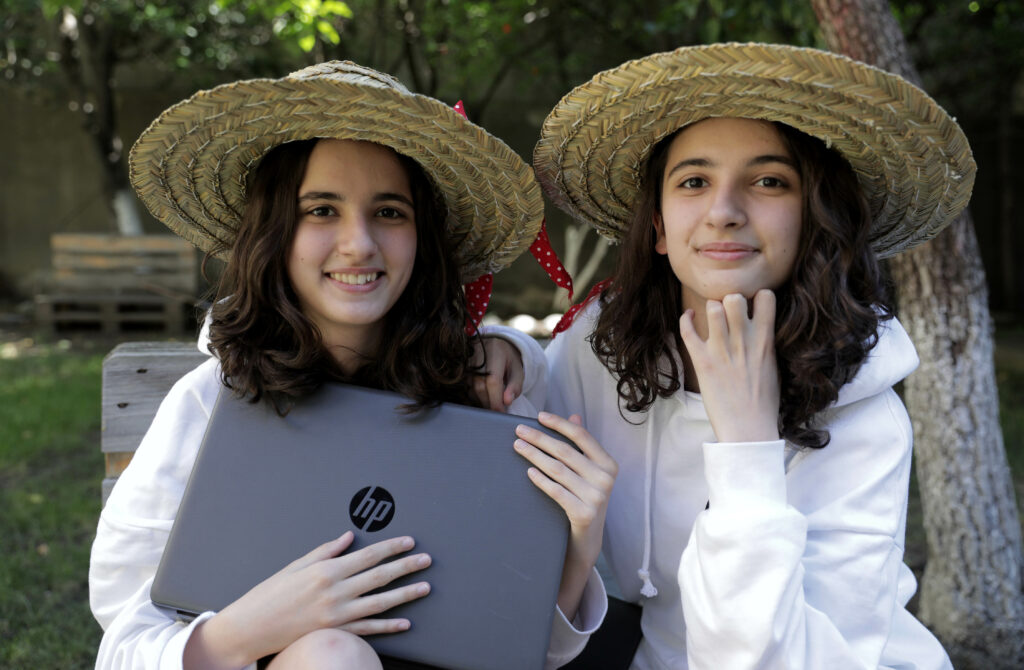 Twin sisters: Nini and Ani Merabishvili
Twin sisters: Nini and Ani Merabishvili Girls work on design, factsheets, posters, and the like
Girls work on design, factsheets, posters, and the like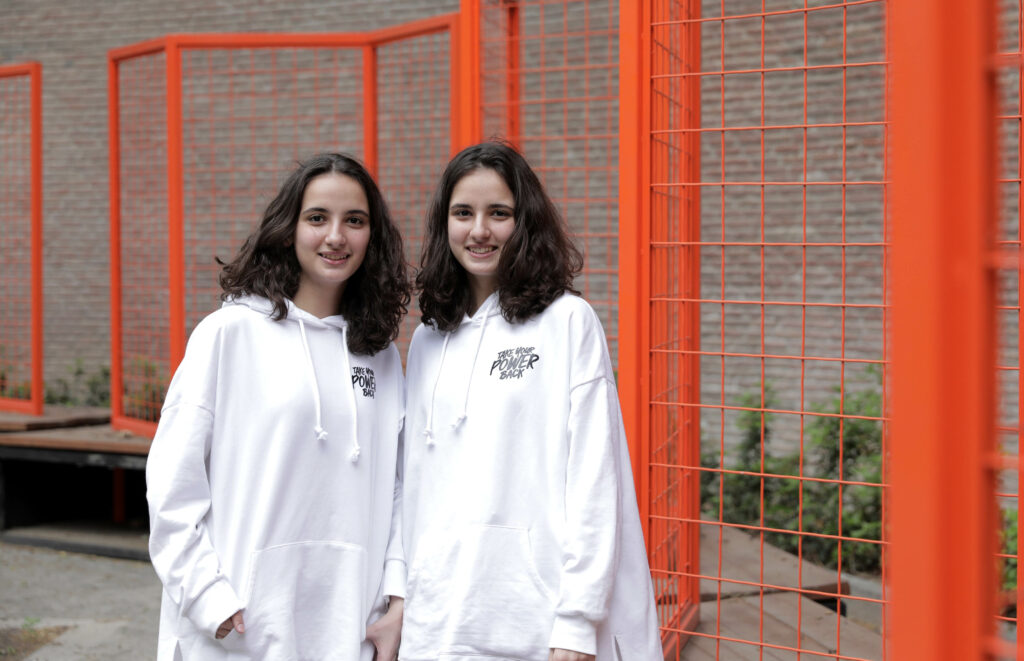 Nini and Ani
Nini and Ani One of the twins during the work
One of the twins during the work Discussing job-related things together
Discussing job-related things together
The girls say the COVID-19 pandemic has accelerated the development of the digital world: “During the pandemic, we saw the design of websites of clothing or shoe shops becoming more important because of the increased relevance of online trade. Thus, it will be very useful if you will learn it. This field is very interesting, developing, profitable and what’s most important – not boring. This activity increases your creativity even more,” Ani explains.
In the future, Nini and Ani plan to turn their hobby into their profession and aim to get university degrees in computer sciences.
“All companies need their own logo, branding, and good advertising to be recognised on the market and trusted by their clients. Experience gained in social media in the digital field is extremely important for success and for generating your own income from a young age,” says Nini.
Priority support for digital skills
The development of digital skills is one of the priorities of EU4Digital. Through this initiative, the European Union aims to strengthen digital skills, provide education, and generally develop this field in the Eastern Partnership countries, including Georgia.
EU4Digital supports the implementation of digital skills strategies in Georgia, helping the government to evaluate and forecast gaps in digital skills, defining a digital competencies framework for small businesses, and supporting the creation of a national skills and jobs coalition that will help stakeholders (government, business, NGOs, academia) in Georgia to coordinate digital skills development.
 Nini and Ani
Nini and Ani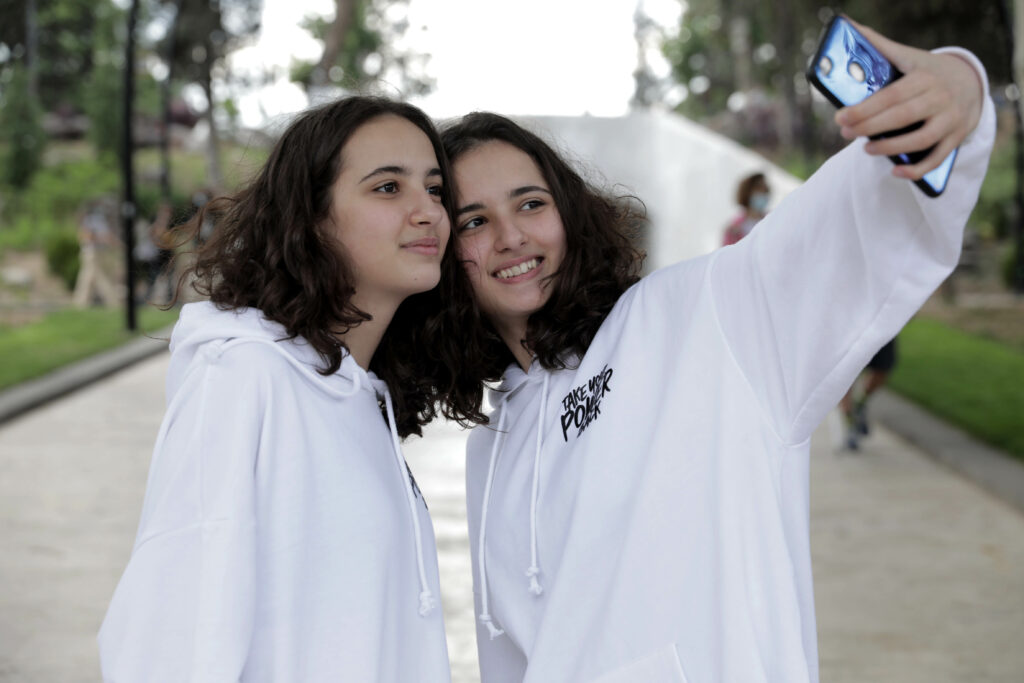 Girls taking selfie
Girls taking selfie Always together
Always together
Māra Jākobsone, EU4Digital spokesperson for eSkills and Vice-President of the Latvian Information and Communication Technologies Association (LIKTA), says digital skills are increasingly seen as one of the key competencies alongside literacy and numeracy, with more than 95% of vacancies requiring digital skills today.
“Most public services have already shifted to online mode or will shift soon. Citizens who lack the relevant skills will lose a lot. Lack of digital skills might cause social and economic isolation. COVID-19 crisis clearly demonstrated the importance of digital skills.” Yet according to a study by the European Commission, she adds, “one young person out of five does not have even basic digital knowledge”.
Addressing the digital skills gap
Jākobsone explains that developing a unified methodology on digital skills will help Georgia better understand the level of its digital skills development and the gaps in comparison with other countries.
It’s a lesson that isn’t lost in Georgia, which is working hard to bridge the digital skills gap, especially in the wake of COVID-19. Through the involvement of the Ministry of Economics and Sustainable Development and GITA, more than 500 beneficiaries have recently been retrained in graphic design, programming, and interface – at least 40% of them women. And about 15-20% of the training participants have already found jobs as a result.
As a result of the pandemic, three-month courses in 2020 were provided entirely online, offering the chance to young people from Tbilisi and nine regions of Georgia to participate. Ironically, the pandemic allowed the training to reach far deeper into the country, explains Alexander Ghvinjilia from GITA’s Department of Strategic Development. “Going online enabled representatives of other districts and municipalities to register, and actually, we covered the whole country. We got rather good results and the number of participants increased,” he says.
 Nini and Ani study at school and work at the same time
Nini and Ani study at school and work at the same time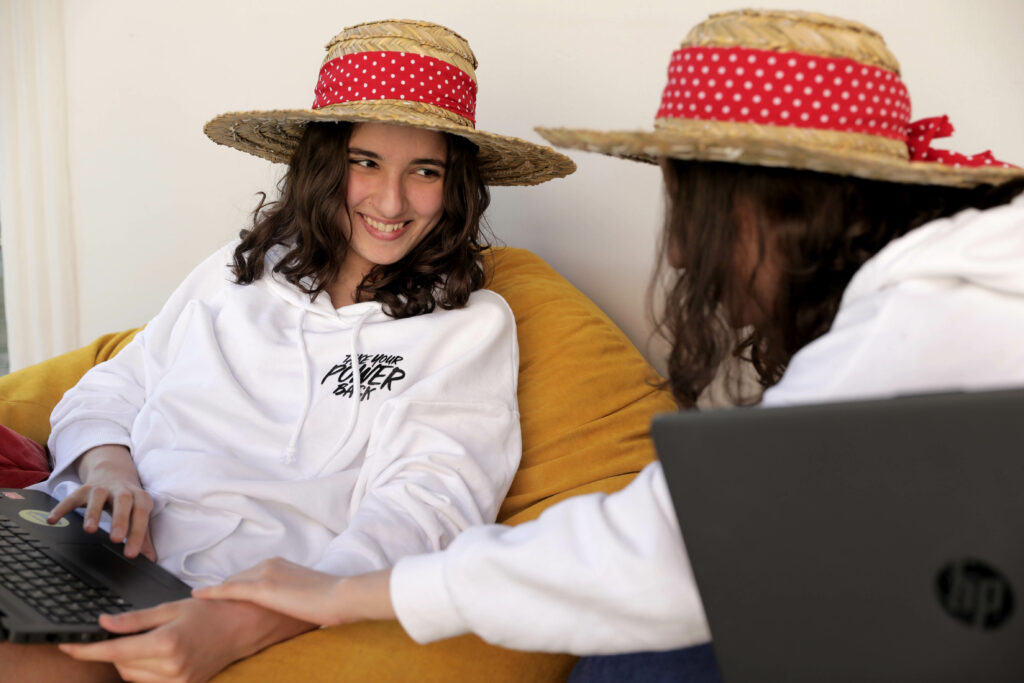 Nini and Ani
Nini and Ani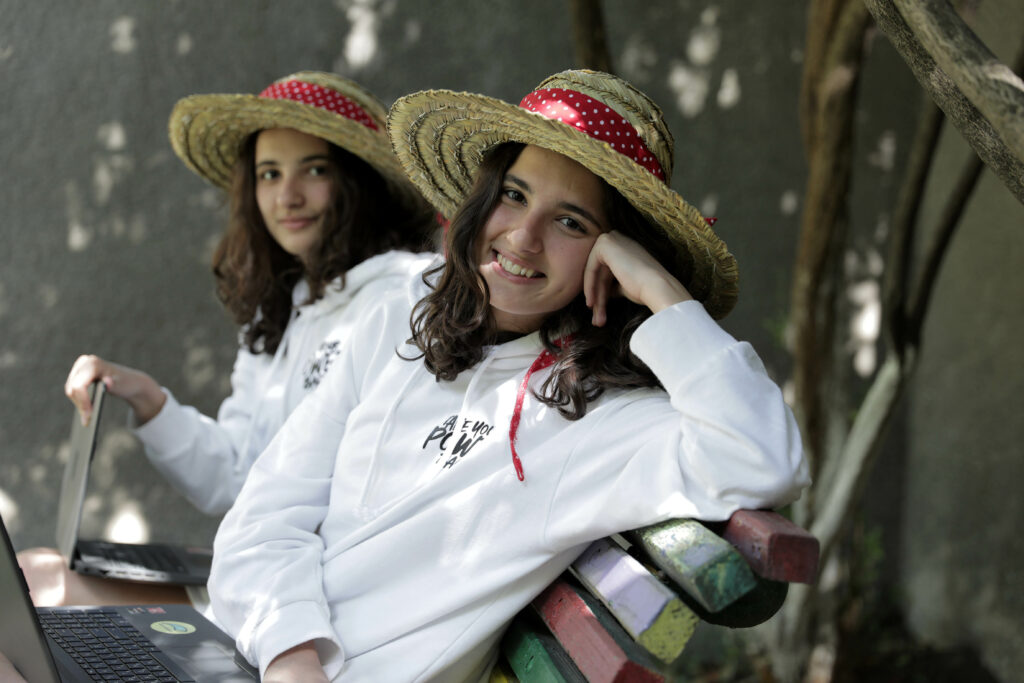 Twin sisters from Georgia
Twin sisters from Georgia
Ghvinjilia says the goal of the course was to raise awareness among young people, especially in the regions, to develop their digital skills, enabling them to find jobs and become professionals.
“Since 2018, we have trained about 800 beneficiaries. Eventually, those who completed the course well, got employed locally, on full-time jobs or as freelancers. Many of them work for successful companies based in Georgia. This is our key achievement,” he says.
Who can participate?
Alexander Ghvinjilia says that to participate in the courses, applicants must complete a registration form on the GITA website. Then the applicant’s competence level is identified. Those who go to the second round are interviewed, and selected participants get the opportunity to attend the course. The age of participants varies from 13-14 to 65. People interested in the digital field can go to the Trainings.gov.ge portal to choose courses.
“The oldest participant, 65, from Batumi was very pleased. Not everybody attends the courses to find jobs, some of them study to improve their skills. The course is baseline, and they have to continue learning on their own. What’s essential is that participation is free. We assign key importance to the applicant’s motivation. They are required to have some time and a laptop to work. If they do not have computers, we provide them with our space,” says Alexander Ghvinjilia.
But most of the beneficiaries are young people – school and university students and young entrepreneurs.
“After these courses, we would like to raise start-uppers, give them technical knowledge to use in a new team, or at least, get employment in this field. In general, we target the regions. Technology level is lower than desired even in Tbilisi, while in the regions this gap is particularly marked,” he states.
Ghvinjilia says the primary goal of these activities is to improve the level of technological skills throughout the country.
The expertise on eSkills provided by EU4Digital, as well as the regional networking and learning opportunities offered by the programme, are invaluable in this context.
“We cooperate with the EU and together with the other countries learn about their experience in providing similar trainings. We have meetings to share experience. In this context, the knowledge provided by the EU is essential,” Ghvinjilia underlines.
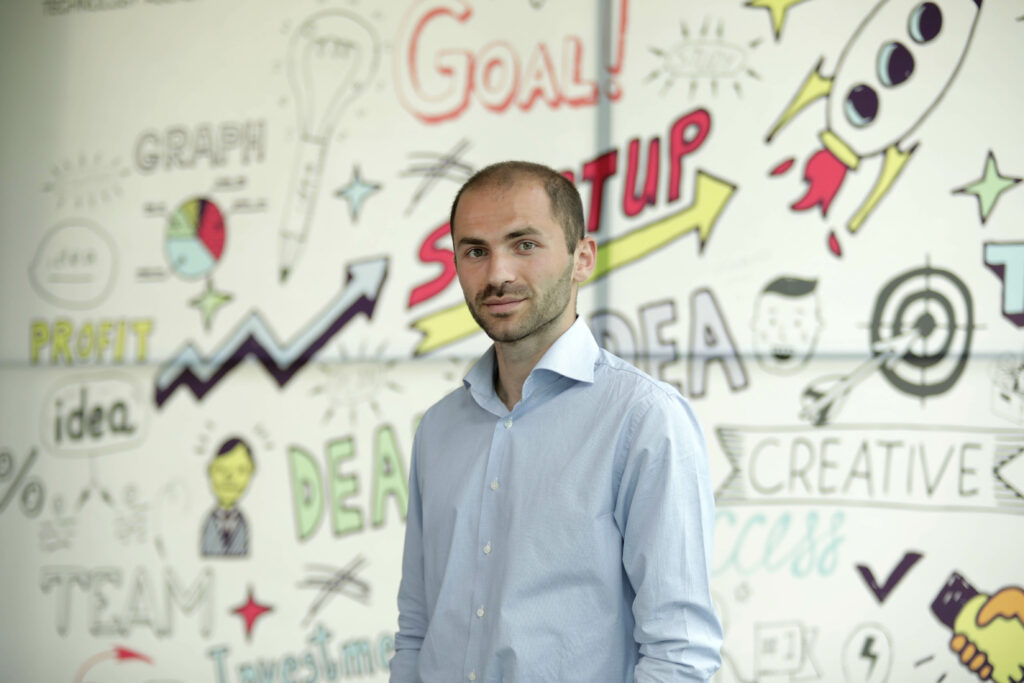 Alexander Ghvinjilia
Alexander Ghvinjilia
The transformation of the economy to meet the challenges of the 21st century is at stake. “Look at Finland,” says Māra Jākobsone of EU4Digital “This is an example of how a country can turn the digital economy into its main route. They dedicated more than 20 years to their citizens’ digital and STEM (science, technology, engineering, mathematical) skills development, and this gave a tangible result.”
Demand for digital skills in Georgia is increasing steadily and this process is irreversible. Studies of job markets in many countries demonstrate that in the coming years people with digital competencies will occupy most highly paid positions.
“Everything is possible,” says 16-year-old Nini, who completed the GITA course last year. “Forget the stereotypes and the people who say you will fail. Just open Photoshop, Illustrator, look for the resources, attend the courses and you will accomplish everything easily. A person might be very clever, but they have to develop their personal potential. We become more liberated when we have more information. The key is enthusiasm, and you should know what you want to do,” says Nini.
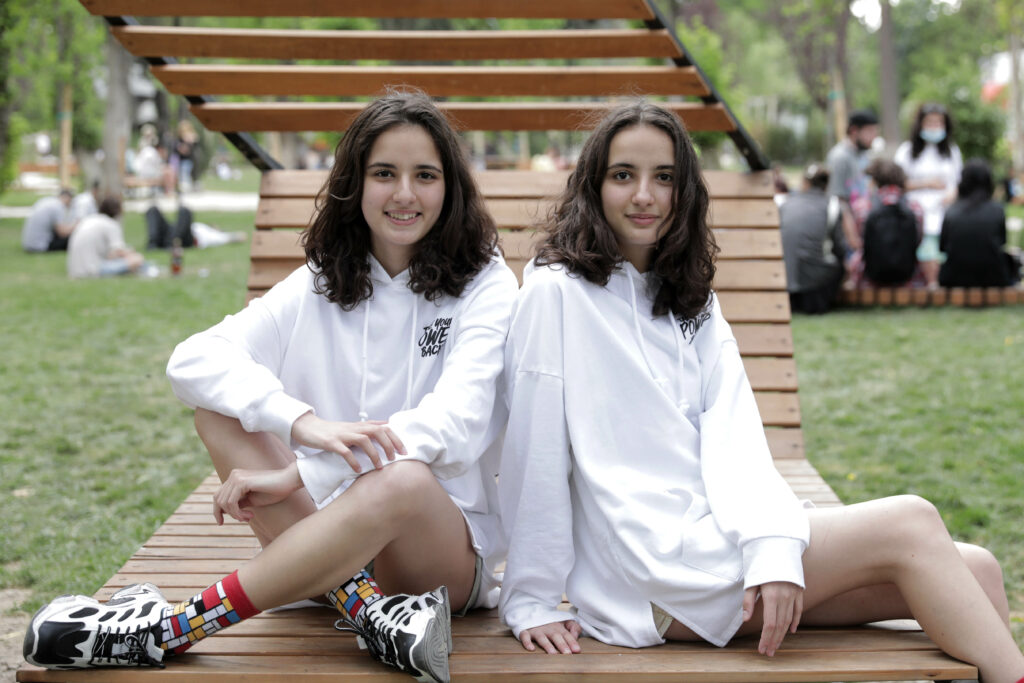 “We work together, understand each other without a word”
“We work together, understand each other without a word”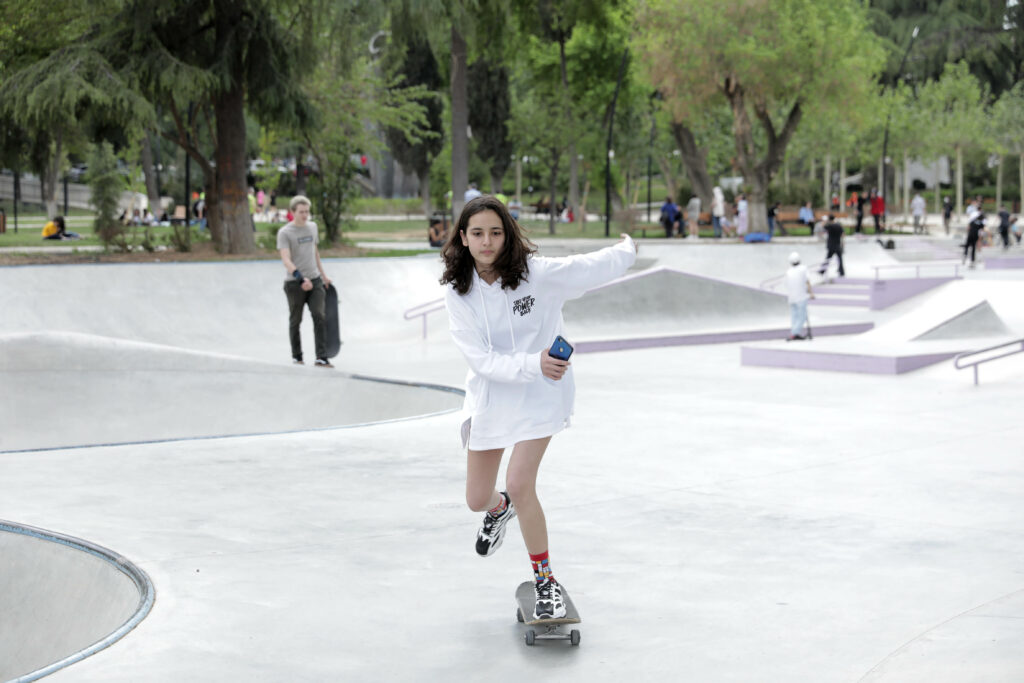 One of the girls during skating
One of the girls during skating Twins like skating too
Twins like skating too
Nini and Ani are living examples of what can be achieved with determination and enthusiasm. But channelling that enthusiasm through an effective digital strategy is the key to translating individual promise into sustainable economic and social development for a new era. And EU4Digital’s support in identifying the skills gaps is absolutely crucial for a targeted skills development.
“Many studies confirm that in the next 30 years, the priority professions in which we currently have a shortage of skills, will be exactly those in which we provide our trainings, e.g. front-end development, graphic design, etc.,” says GITA’s Alexander Ghvinjilia.
Article published in Georgian by On.ge
Find out more
EU4 Digital https://eufordigital.eu
EU4Digital eSkills https://eufordigital.eu/thematic-area/eskills/
EU Delegation in Georgia https://eeas.europa.eu/delegations/georgia
GITA https://gita.gov.ge
GITA training opportunities http://trainings.gov.ge
Through the EU4Digital Initiative, the European Union supports the implementation of digital skills strategies in the Eastern Partnership countries, in particular by:
- Drafting a methodology for measuring and forecasting national digital skills gaps;
- Defining a common competence framework for SMEs and microbusinesses;
- Supporting the creation of national coalitions for skills and jobs, now established in Armenia, Azerbaijan and Ukraine, with ongoing support to create them in Belarus, Georgia and Moldova;
- Carrying out training seminars and workshops;
- Implementing promotion campaigns in partner countries.
MOST READ
SEE ALSO

No, time is not on Russia‘s side
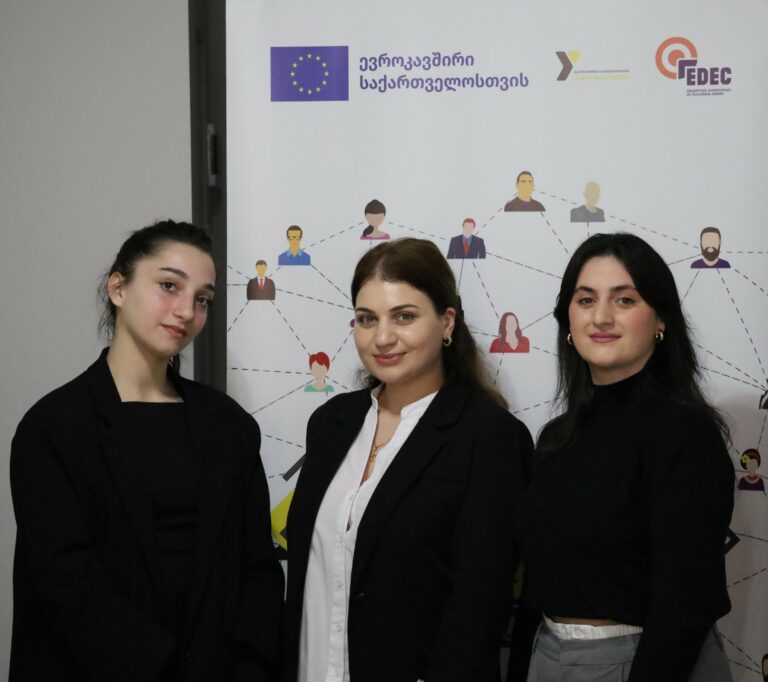
A hands-on approach to boost youth employment in Georgia
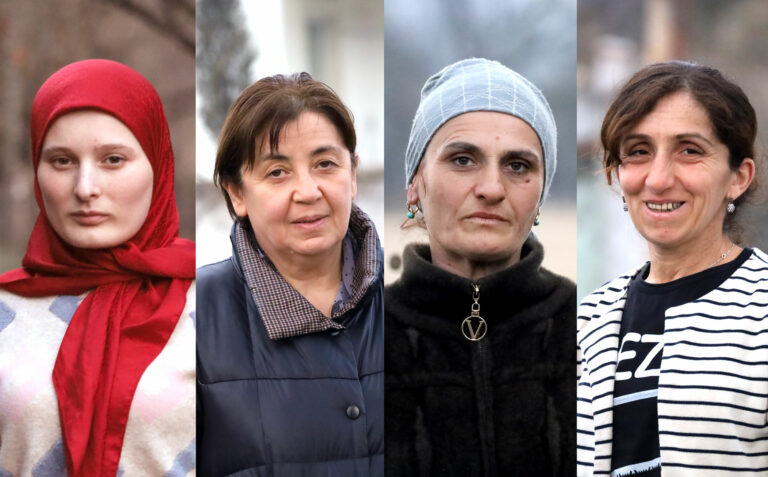
Taking health into their own hands: women’s empowerment in the remote villages of Georgia
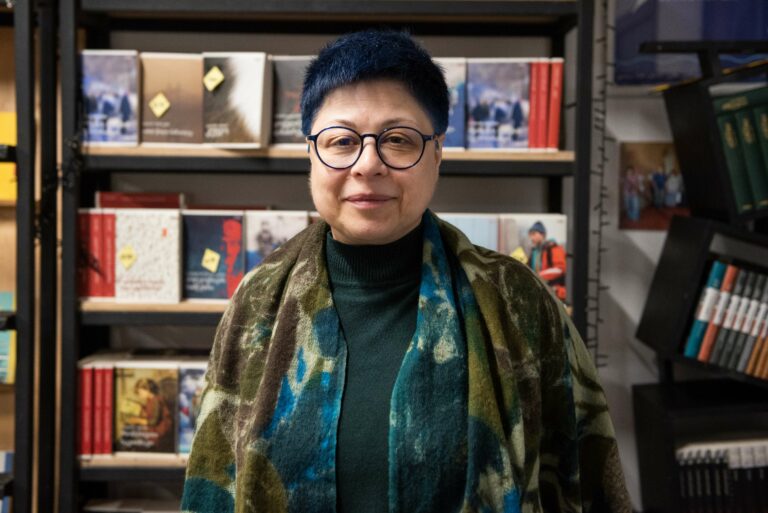
A woman publisher in a male-dominated industry – the path to a big dream

Be one step ahead of a hacker: check simple cybersecurity tips!
More campaign pages:
Interested in the latest news and opportunities?
This website is managed by the EU-funded Regional Communication Programme for the Eastern Neighbourhood ('EU NEIGHBOURS east’), which complements and supports the communication of the Delegations of the European Union in the Eastern partner countries, and works under the guidance of the European Commission’s Directorate-General for Neighbourhood Policy and Enlargement Negotiations, and the European External Action Service. EU NEIGHBOURS east is implemented by a GOPA PACE-led consortium. It is part of the larger Neighbourhood Communication Programme (2020-2024) for the EU's Eastern and Southern Neighbourhood, which also includes 'EU NEIGHBOURS south’ project that runs the EU Neighbours portal.

The information on this site is subject to a Disclaimer and Protection of personal data. © European Union,







